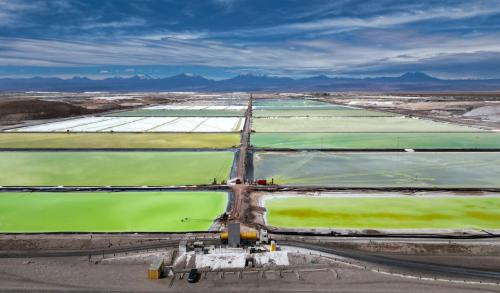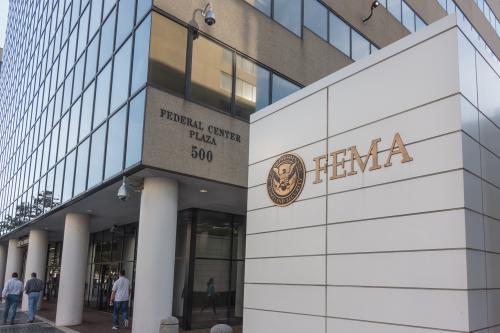As Tony Hayward, BP’s beleaguered chief executive, made the trek up to Capitol Hill today to appear before the House Energy Subcommittee on Oversight and Investigations, he faced variations on a familiar line of questioning.
What was BP, a foreign company, doing cavorting around in U.S. waters, blithely drilling holes miles beneath the surface without so much as a back-up plan if things went wrong?
Some answers have already emerged, at least in the court of public opinion. BP, runs the popular narrative, had an accomplice in the Interior Department’s Minerals Management Service, whose coziness with its corporate charges has been widely documented. The company’s lobbying activities—$16 million of contributions in 2009 alone, according to the Center for Responsive Politics —bought it accomplices on Capitol Hill in the form of leniency and favor among lawmakers. But there are two more powerful accomplices in this equation: you and me.
The Macondo well has now been gushing for 58 days. Initial estimates of the amount of oil spewing into the Gulf continue to be revised painfully upwards. This week the official estimates were increased to between 35,000 and 60,000 barrels per day (bpd). Assuming the higher figure, 3.48 million barrels will have been discharged into the Gulf to date. So what—aside from the very obvious damage to the U.S. environment and industry—does this have to do with us? Quite a lot, actually.
According to the U.S. Energy Information Administration, U.S. oil consumption in 2009—a year in which global oil consumption suffered its steepest drop in 27 years—was 19.5 million bpd. That was enough to produce the 9 million bpd of gasoline consumed by the U.S. vehicle fleet. Based on these figures and the latest flow-rate estimates, the total volume of oil that has leaked into the Gulf so far is equal to the amount needed to keep one out every five American vehicles on the road for one day. Put another way, the sum of all the oil collected by the containment structure, plus all the oil currently lying on, and beneath, the surface of the ocean, plus all the oil that has made landfall, plus all the oil that has been burned off, absorbed by booms, dug up from beaches, and rinsed from the feathers of endangered birds is equal to the amount needed to keep U.S. cars and trucks on the road for just over four hours. Even this is optimistic: the EIA predicts that motor-fuel consumption in the current quarter will be 70,000 bpd higher than the corresponding period a year ago. Projections for 2011 show an increased rate of demand growth for gasoline relative to this year. With state-owned oil companies controlling an increasing share of the world’s remaining onshore resources, the deepwater is one of the few options left for privately owned companies looking to meet this rising demand.
The leak from BP’s well in the Gulf of Mexico is an unqualified catastrophe. The environmental and economic losses that the spill will inflict are surpassed only by the losses to the families of the workers who were killed in the blast on the Deepwater Horizon rig on April 20. BP may have been negligent. It may have cut corners and broken rules, at times with a little help from friends in high places. If so, it will undoubtedly be brought to book by a Justice Department eager to start the indictment process against the “responsible party.”
But those lawmakers raking BP over the coals and those customers threatening to boycott the company would do well to cast their minds back to the last time representatives from major oil companies were treated to high-profile public displays of congressional ire. On that occasion, in April 2008, oil executives were asked to explain why gasoline was approaching the record level of $4 a gallon.
BP is not drilling miles beneath the surface of the ocean for its own entertainment. It is doing so to serve the needs of a public that simultaneously wants energy independence and demands cheap and plentiful gasoline. Until we can curb our thirst for oil and move to renewable sources of transportation fuel—a transistion that will involve a necessary dose of financial and practical discomfort—we are the real responsible party for every deepwater well drilled in the Gulf of Mexico and beyond.



Commentary
The Oil Spill and American Consumers, BP’s Other Accomplice
June 17, 2010